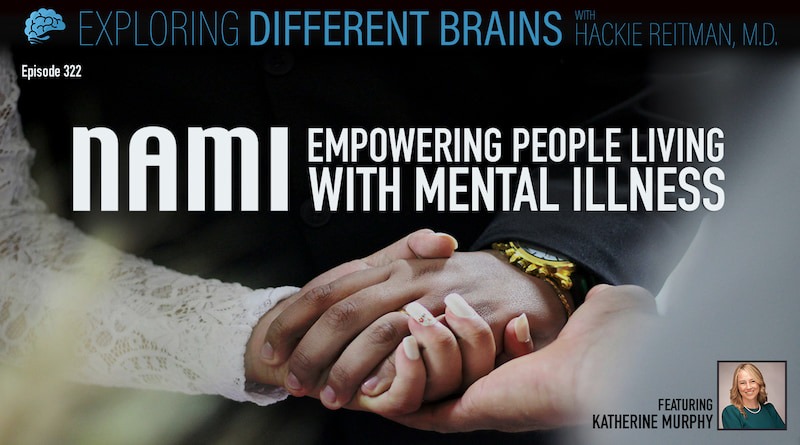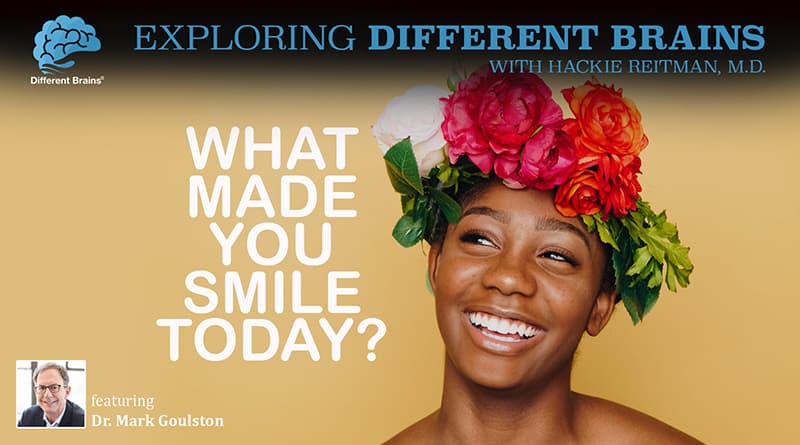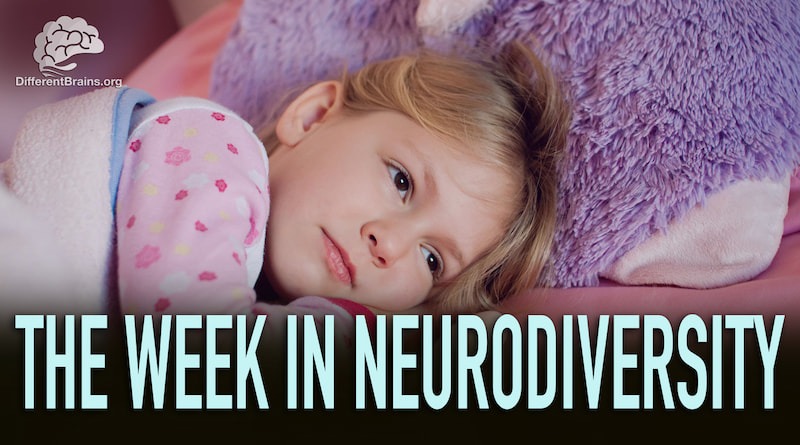Neurodiversity Self-Advocate Spotlight: Zachary Tovin’s Autism Journey | EDB 318

Zachary Tovin shares his perspective on being an autism self-advocate.
Zach is on the Autism Spectrum and grew up in South Florida. After high school, he attended the Horizons School in Birmingham, Alabama, where he studied and honed the skills he would need to live and work independently. In 2019, Zach graduated from ARC Broward Culinary Arts program, receiving his Culinary Arts certification in knife and cooking skills. He is a board member of Casa Familia, a non-profit organization dedicated to creating sustainable, enriched and affordable housing communities, with features, amenities and services designed to benefit adults with intellectual, developmental, and other related disabilities.
When he is not working, Zach enjoys photography, listening to music, playing video games and hanging out with friends. Zach is a member of the Camera Club at Flamingo Gardens, and has displayed his photography at various events in South Florida.
For more about Zach: https://zachtovinphotography.wordpress.com/
For more about Casa Familia: https://casafamiliainc.org/
AUDIO PODCAST VERSION:
Or look for us on your favorite podcast provider:
iTunes | Stitcher | SoundCloud
FULL TRANSCRIPTION
Note: the following transcription was automatically generated. Some imperfections may exist.
HACKIE REITMAN, MD (HR):
Hi, I’m Dr. Hackie Reitman, and welcome to another episode of Exploring Different Brains. And today I’m excited to have with Zach Tovin, who is on the board of Casa Familia, which we’re going to learn all about. Welcome.
ZACHARY TOVIN (ZT):
Thank you.
HR:
Zach, tell us about your attachment to neurodiversity.
ZT:
Well, I, for one thing, I kind of have a disability myself.
HR:
What might that be? Do you care to share?
ZT:
Yeah, of course, I’m on the autism spectrum. And I was diagnosed with that when I was about five years old. And so I I’d say, I know, I know a little bit about that.
HR:
Well, self advocates generally know more than the so called experts. Do you consider it a disability, or a superpower? A little of both? Or how do you look at it?
ZT:
I’d say I’d say a little bit of both, actually. No,
HR:
what do you consider to be your strong points?
ZT:
My strong points. Very committed to things like I don’t, I don’t I’m not one of those people that that give up very easily. When When performing a, a task and I’m also very, like creative, like, and I’m into like, I’m into the outdoors and stuff. And so I kind of have like that, that. That mind that just allows me to like, you know, think a lot more than then. Then regular people would and and you know.
HR:
Oh, that’s cool.And what might you consider weak points? Like if you asked me about my weak points, I definitely talk too much.
ZT:
Well for one thing, my weak point is the organization and you know, and keeping up with things and I have had that struggle since I was really little I tried to like do things like like write you know, things down on the on my little calendar app I have in my phone. But basically, that’s pretty much my biggest struggle.
HR:
We share that because I struggle with that a lot. And so I use my you know, my phone coordinating fact, Joseph and I — Joseph saves me with this stuff. And I was just syncing my calendar on my phone to my computer because without all the notes I have and everything else I Just forget stuff and I don’t get organized and it’s a real challenge.
ZT:
Yeah, definitely. Especially being you know, having ASD kind of just makes it a little bit worse.
HR:
Yeah. share a bit about Casa Familia and what it is to those of us who those of our audience maybe never heard of it.
ZT:
For sure. Casa Familia is an is an independent living home. They, they they have assisted living and they also have independent living assisted living is like you get like assistance. It’s kind of more like, like it’s it’s more like, like, people kind of help out more and it’s it’s not like it’s not like as independent as in the pendant living it’s like, you’re you’re you’re living by yourself, but you get a lot more help you get a lot more assistance.
HR:
So you have like coaches and things of that…?
ZT:
Yeah and we just started our groundbreaking ceremony in last December. So we should be building it the building and the construction takes about 12 to 18 months. But once it’s done, it should be one of the first one of the first of its kind in Florida.
HR:
How cool. Where’s it located?
ZT:
It’s located in Kendall, actually.
HR:
And how did you get involved with it?
ZT:
Well, I, um, I heard about I heard about Casa Familia and they actually wanted me to be on the on the the advisory board. And from there, I became a little bit more involved with their program. And they asked me if I want it to be in the on the board of directors and I and I volunteer to be part of the board of directors. So now I’m part of that.
HR:
Wow, that’s a big honor. And you’re doing a lot of people a lot of good. You’re also an alumni of the University of Miami SALT program. Could you tell our audience about what that is? Oh,
ZT:
So it stands for self advocacy leadership training. And it’s basically just a it’s a program that lasts. You know, it’s not very long. It’s not like all year, it’s only like, I think for like a week and it’s about six hours a day. And it just helps you to be more like — to help be more it develops your leadership skills and makes you better in, in advocating and it also makes you more aware of, of how other people you know, other famous people with disabilities like Albert Einstein, and and it just makes you more aware and it makes you it makes you more of a leader.
HR:
And then at the University of Miami, that’s where Dr. Allessandri is head of the autism program there.
ZT:
I believe so yeah.
HR:
He thinks the world of you and he strongly recommended that we, we get in touch with you or learn about the program. Now, you also participated in ARC Broward culinary arts program, can you tell us about that?
ZT:
ARC Broward, the program that I went to is it’s about a, a eight, a six to eight month program. And it not only does it help you get a job in culinary in the culinary field, but it helps you develop culinary skills, it we did everything from in knife knife skills, you know, chopping, chopping things with with knives on getting to learn the equipment in the in the back of the restaurant, like the stove and, and and how to, you know, operate the dishwasher. And, and it gets you all ready for that. So that once you once you get a real a real job in the in the field, you’ll be better, more knowledgeable and more you’ll have an easier time. Even though you know you’re you have you know you have a disability and it just makes it a lot easier. And it’s a lot so it’s very helpful and I I highly recommended for people with disabilities who want to become chefs. I now work at at Flanagan’s and I used to work at a university down in note in Nova NSU. And I used to work for the cafeteria there.
HR:
So its been good you really love it, huh?
ZT:
Yeah, I do you know.
HR:
What’s your favorite thing to cook? Or a couple of your favorites.
ZT:
Well, for one thing, during the holidays I make blueberry blintzes is for for my family. And I’m gluten free. So I have to choose a special kind of like a special kind of batter to make the crate with but I’d say that is is one of my favorite things, especially because I went to a school in Alabama where they teach independent living skills and everybody made their own recipe. And mine actually got picked as one of the winners for the top.
HR:
Think of me hungry sounds delicious. Now I also learned about you they get very much into photography as well, can you tell us something about photography?
ZT:
Well, I’m into more into sky photography, which is I like to take pictures of sunsets and, and other types of nature and during COVID I feel like photography was kind of just an escape from all the chaos that was going around. And, and I really, you know, I was more into it, now I have a job, so I don’t I, you know, I don’t have as much time, you know, to, to, to, like, to reserve like, a chunk of time for it, because I’m, like, really busy and booked. But like, you know, I, I enjoy photography. I have other interests too, though.
HR:
Such as?
ZT:
Well, I for one thing, love the outdoors, as I may have already mentioned, I love going to the beach a lot. I like I, I enjoy, you know, being out in the in the sun, exercising, doing yoga, going to the gym. And I also enjoy the you know, I also enjoy the weather a lot, you know, I I wanted to become a meteorologist at some point. And, and I just like enjoying, you know, hanging out with my friends you know.
HR:
I find myself with my iPhone taking photos, the clouds a lot, because to me, the clouds are like a Rorschach, you can make them into anything you want.
ZT:
I really like taking photos of clouds. Yeah.
HR:
Do you feel that your cooking and photography and other interests? Make you have better self advocate?
ZT:
In a way? Yeah. I mean, I, I used to in back when I, you know, was, you know, really into photography, and I had a lot more time with it. I actually went to workshops. And, and and I think going to workshops kind of inspired, you know, other people to, you know, to do to get into photography as well, because I used to sell my artwork and, and stuff. And and I think I think it just I think that it definitely does play a role in that, for sure.
HR:
And do you find that looking forward to something in the near future, like in the next couple of months is a positive thing? And what are you looking forward to in the next couple of months?
ZT:
Well, I’m for one thing, um, I’m probably going to be taking a advanced culinary training course. In that in the, in, in ARC Broward in the, in that culinary arts program that I mentioned earlier, I’m probably going to be doing an advanced culinary course. And it’s going to really make me better at you know, a better, you know, better chef and better more knowledgeable in generals. Because, right now Flanagan’s, to be honest, has been a little bit of a struggle for me, and I’m thinking but you know, once I get even more training, I can, I can better be, you know, be more advanced. And maybe I can go back to like, because I’m doing a dishwasher right now. But maybe once I learned even more of the skills I can, I can be, you know, start going back to prepping again. And that’s definitely something I’m really looking forward to in the next few months as well as, as well as going I’m going to be going on that Alaska cruise.
HR:
Oh, how cool. Alaskan cruise. If you could pick one thing that you’d like the public to know about autism, what might that be?
ZT:
Well, I don’t look at autism, always as a negative thing. I kind of look at autism as somewhat, you know, of a benefit. Because I think, you know, if I wasn’t born with autism, it would have changed, you know, it would have changed my life and it would have changed, you know, my maybe, maybe my parents life too because they do work on you know, their physical therapist and my Um, specializes in, in, in helping in people, you know, helping out people with disabilities. And I don’t think, you know, I think if I was born, you know, as just somebody that’s just typical, it would have, I would have had a whole different life. And I feel like, like you said, it kind of just makes me you know, it makes me more passionate about certain things versus if I didn’t have autism. And I, I really try not to look at it, as you know, as a negative thing, I try to look at it as more of like a benefit versus a liability.
HR:
Interesting, and that’s, that’s kind of like, when we were thinking of the name of our organization, we call it the DifferentBrains.org. Because I like what one of my idols Temple Grandin said, “different, not less”. Actually, she named one of her books like that. Because it’s different. It’s, it’s not less and sometimes it’s a gift and the strength.
ZT:
I find it to be pretty unique in a way.
HR:
Absolutely. How can our audience learn more about you?
ZT:
Well, um, I do have a website I haven’t updated in a while. And I’m also — they can maybe also go on the Casa Familia website. By and maybe they can read more about, about me in there as as well.
HR:
Zach, what is one piece of advice you would have for someone with autism who wants to become a self advocate?
ZT:
My advice to that is go to as many self advocacy training programs as as possible and, and also practice to practice. Definitely, definitely helps with that. And also, the way you think about autism to like, like, don’t think about autism as as a such a bad thing. Think of it as something, use it, you know, to your advantage and don’t and don’t let it don’t let it bring you down because you know, it’s it’s unique in its in its own special way. And, you know, I try to get people to not really, you know, look at autism as as as a really bad thing. And I feel like being different is actually in a way is actually better than because, like, you know, sometimes who wants to be normal?
HR:
Zachary Tovin. It’s been a pleasure to meet you and to talk to you today. And I look forward to learning more, and keep up the good work you’re doing as a board member at Casa Familia. And as a neurodivergent, self advocate, for those of us whose brains are a little bit different.
ZT:
Yeah, for sure.
HR:
All right, thanks a lot.
ZT:
Thank you.




